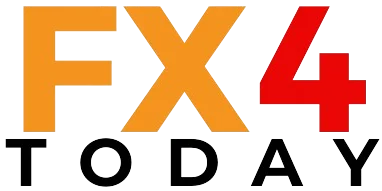Introduction
Choosing the right forex broker is crucial for success in the dynamic and competitive forex market. A broker acts as your gateway to the market, facilitating trades, providing trading platforms, and offering essential services. This article explores key factors to consider when selecting a forex broker, ensuring you make an informed decision that aligns with your trading needs and goals

Understanding the Role of a Forex Broker
Responsibilities of a Forex Broker
A forex broker facilitates currency trading for retail and institutional clients by providing access to the interbank market. They execute trades on behalf of traders and offer various services, including trading platforms, market research, and customer support.
importance of Choosing the Right Broker
Choosing a reputable and reliable forex broker is essential for several reasons. A good broker ensures fair pricing, reliable execution of trades, and the security of your funds. They also provide essential tools and resources that can enhance your trading experience and profitability.
Regulation and Security
Importance of Regulation
Regulation ensures that forex brokers operate within legal boundaries and adhere to strict standards of conduct. Regulated brokers are required to segregate client funds, maintain adequate capital reserves, and undergo regular audits to ensure transparency and fairness.
Checking Broker Licenses and Registrations
Before choosing a forex broker, verify their regulatory status. Look for brokers regulated by reputable authorities such as the US Securities and Exchange Commission (SEC), the UK Financial Conduct Authority (FCA), or the Australian Securities and Investments Commission (ASIC).
Security of Funds and Client Protection
Ensure that your broker offers robust security measures to protect your funds and personal information. Look for brokers who use encryption technology, offer secure payment methods, and provide insurance or compensation schemes in case of broker insolvency.
Trading Costs and Fees
Spread Types and Pricing Models
Compare the spreads offered by different brokers. Spreads can be fixed or variable, with variable spreads typically tightening during liquid market conditions. Consider whether the broker charges commissions in addition to spreads.
Commissions and Overnight Fees
Some brokers charge commissions on trades, especially for ECN (Electronic Communication Network) accounts. Additionally, check for overnight fees or swap rates applied to positions held overnight, as these can affect your overall trading costs.
Hidden Costs to Watch Out For
Be aware of any hidden costs, such as inactivity fees, withdrawal fees, or fees for using certain trading features. Read the broker’s terms and conditions carefully to understand all potential costs associated with your trading activities.
Trading Platforms and Tools
Compatibility and Usability
Choose a broker that offers a trading platform compatible with your devices (desktop, web, mobile). The platform should be user-friendly, intuitive, and equipped with essential features like charting tools, technical indicators, and order management options.
Charting and Analysis Tools
Advanced charting capabilities and technical analysis tools are crucial for making informed trading decisions. Ensure the trading platform provides customizable charts, real-time data updates, and access to historical price data.

Mobile Trading Capabilities
If you prefer trading on the go, opt for a broker with a reliable mobile trading app. The app should offer full functionality, including order execution, account management, and real-time market updates, ensuring you can trade anytime, anywhere.
Asset Selection and Market Access
Range of Currency Pairs Offered
Consider the variety of currency pairs offered by the broker. Major pairs (e.g., EUR/USD, GBP/USD) are widely traded, but access to exotic pairs can provide additional trading opportunities. Ensure the broker offers the pairs you intend to trade.
Access to Other Financial Instruments
Some brokers offer access to additional financial instruments such as commodities, indices, and cryptocurrencies. If you plan to diversify your trading portfolio, choose a broker that provides access to a broad range of assets.
Market Access and Execution Speed
Execution speed is critical in forex trading, especially for scalpers and day traders. Choose a broker with reliable market access and fast execution times to minimize slippage and ensure your trades are executed promptly at the desired price.
Customer Support and Service
Availability and Responsiveness
Evaluate the broker’s customer support availability and responsiveness. Look for brokers that offer 24/7 customer support via multiple channels such as phone, email, and live chat, ensuring you can get assistance whenever needed.
Support Channels and Languages
Check if the broker provides customer support in your preferred language. Language barriers can hinder effective communication and troubleshooting, so choose a broker that offers support in languages you are comfortable with.
Reputation and Customer Feedback
Research the broker’s reputation and read customer reviews and testimonials. Look for feedback on reliability, customer service, and overall satisfaction. Avoid brokers with a history of unresolved complaints or negative reviews regarding fund withdrawals and trading issues.
Educational Resources and Research
Training Materials and Webinars
Quality educational resources can help traders improve their skills and knowledge. Choose a broker that offers comprehensive training materials, webinars, and educational articles on forex trading strategies, market analysis, and risk management.
Market Analysis and Insights
Access to timely market analysis and insights can provide valuable information for making trading decisions. Look for brokers that offer daily market updates, economic calendars, and research reports from experienced analysts.
Additional Educational Offerings
Some brokers offer demo accounts for practice trading, which can be beneficial for beginners. Additionally, consider brokers that provide trading tutorials, glossaries of trading terms, and interactive learning tools to support your forex trading journey.

Conclusion
Summary of Key Considerations
Choosing the right forex broker requires careful consideration of factors such as regulation, trading costs, platform features, market access, customer support, and educational resources. Each trader’s preferences and trading style should guide their decision-making process.
Final Tips for Choosing the Right Forex Broker
To maximize your trading success and protect your investment, prioritize transparency, reliability, and customer satisfaction when selecting a forex broker. Conduct thorough research, compare options, and choose a broker that meets your specific trading needs and goals.




